
Who Spins Olympic Gold into Cold Hard Cash?
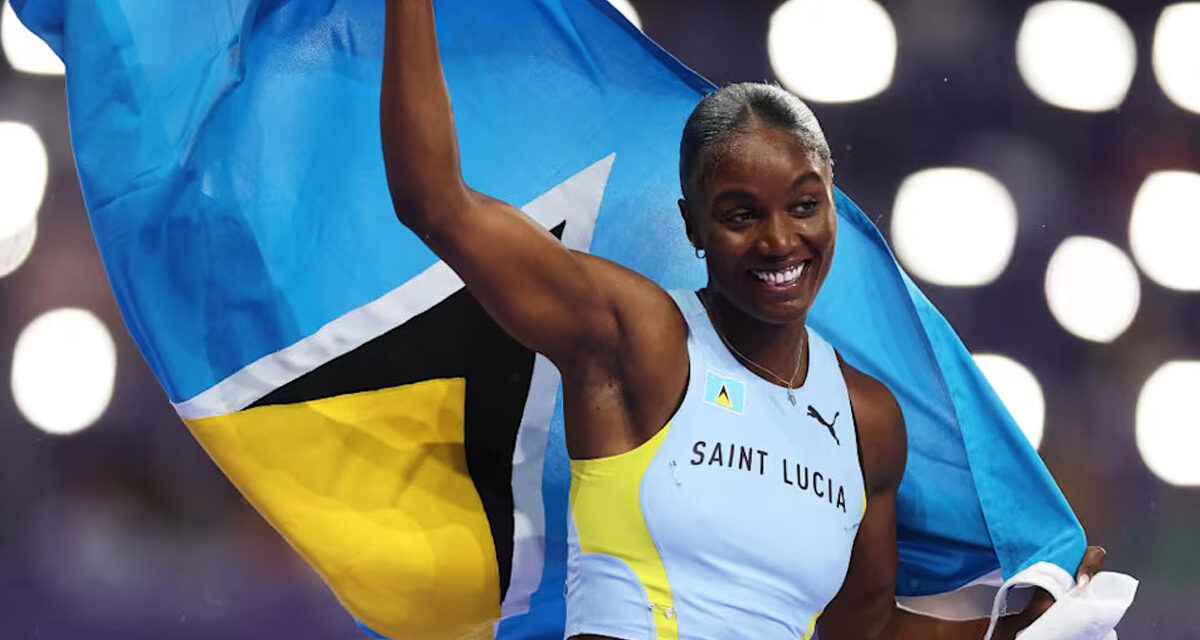
The time, energy and money spent on the Olympics is exhausting. Between the athletes, coaches, organizers et al it is a non-stop extravaganza that goes on for several weeks every two years, alternating winter and summer games. We are currently witnessing the frenzy in Paris, France, as the city of lights is hosting the thirty-third Olympiad in modern times. For the competitors, it is the event of a lifetime, where winning is paramount and often times financially rewarding. The cities that host the games roll the dice on spending billions of dollars in return for receiving notoriety and billions of dollars back in economic gains. But can the Olympic Games really spin gold into cold hard cash?
To give you an idea of the scope of the games, the following statistics from the International Olympic Committee show just how much is involved in making an Olympiad happen.
- Billions of television viewers worldwide
- 350,000 hours of TV broadcast
- Millions of spectators
- 35 venues
- 10,500 athletes
- 20,000 accredited journalists
- 45,000 volunteers
- +600,000 meals served at the Athletes’ Village every day
The Olympics generate revenue for several key stakeholders. Let’s take a look at the major players in the Olympiads and more closely examine the finances of the cities involved and the athletes themselves. It’s well known that the Olympics never stay on budget and almost never turn a profit, so who comes up with all the billions of dollars that are needed to put on these events that don’t pay off financially?
International Olympic Committee (IOC): The IOC is a nonprofit organization funded entirely with private money. According to the IOC’s own numbers, 73% of its revenue comes from broadcasting rights, 18% comes from marketing rights and 9% comes from other rights and revenue streams. The IOC keeps 10% of what it makes and doles out the rest. No one at the IOC is getting rich, and as their disbursements are so wide, no one is getting rich from them.
Organizing Committees for the Olympic Games (OCOGs): These committees receive funds from the IOC and generate additional revenue through ticket sales, local sponsorships, and licensing. Sounds like another layer of bureaucracy. The IOC contributes a large part of the finances needed to stage Olympic Games through the OCOG. Here are some recent budgets and forecasts:
– Tokyo 2020 – USD 1.7 billion
– Beijing 2022 – USD 880 million
– Paris 2024 – USD 1.7 billion
– Milano Cortina 2026 – USD 925 million
– Los Angeles 2028 – USD 1.8 billion
Host Cities and Countries: While hosting the Olympics can be costly, host cities and countries will tell you they can benefit economically through tourism, infrastructure investments, and global exposure. This isn’t always the case. Hosting the Olympic and Paralympic Games has become an extraordinary feat in and of itself, and a financially untenable one at that.
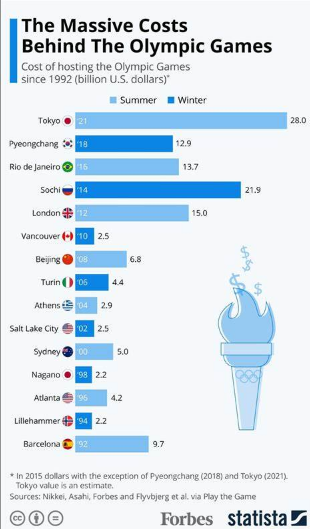
As the chart above shows, there is no Olympic gold in terms of profit for the host cities. Pomp and pageantry, yes. Cold hard cash on the books, no. On the contrary, it is becoming increasingly difficult to convince a city or country to host an Olympic event because of the staggering costs associated with it. According to Victor Matheson, a College of the Holy Cross professor of economics who has researched the financial costs of the Olympics, “This will be the first Olympics, since Sydney, where the total costs are coming in under $10 billion.” So what happens when a host city exceeds its budget? The tab is picked up by you and me if in America, and our counterparts abroad. For example, London spent $14.6 billion to host the Olympics and Paralympics in 2012. Of that amount, $4.4 billion came from taxpayers. Ouch!
So if you aren’t in the business of making money or balancing your budget, like most governments, what can you expect to gain from hosting the games? Well, according to the IOC, host cities will create jobs, deliver contracts and opportunities that weren’t present before bringing the Olympics to town.
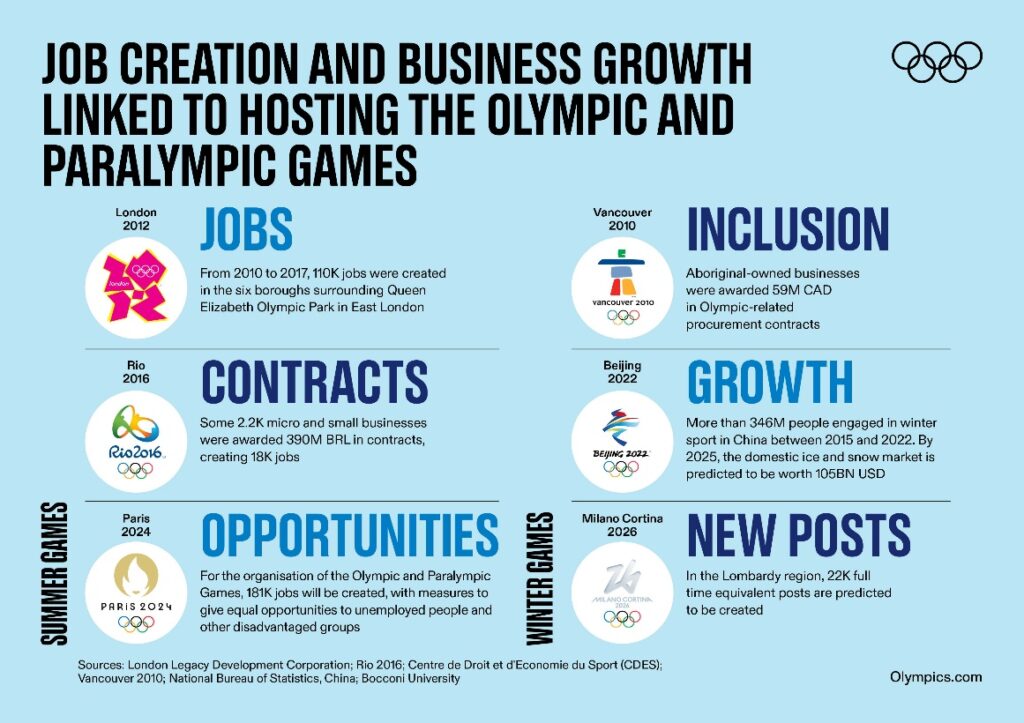
Interestingly enough, while a host city brings in one demographic for the games, it loses another. The event will draw sports enthusiasts and celebrities, but will dissuade the average tourist from coming during that period due to the crowds, costs, etc. According to Amanda Phalin, an associate professor who specializes in international business and economics at the University of Florida’s Warrington College of Business, “Although sporting events, including the Olympics, attract a lot of people, there are also a lot of people who are going to forego visiting there because of the event.”
Athletes: Although the IOC doesn’t pay athletes directly, they can earn money through endorsements, stipends, and medal bonuses from their home countries. Training for the Olympics is essentially a full-time job, so athletes have to scramble to support themselves during the process. Like minor league baseball, there are no riches prior to winning the big event. According to the United States Olympic & Paralympic Committee (USOPC), more than half of U.S. Olympic hopefuls, or 59%, reported making less than $25,000 during the year of their respective Olympics. However, one must remember that all Olympic athletes are not created financially equal. The U.S. men’s basketball team plays for free, but each member is a multimillionaire in their own right. Probably can’t say the same for the mixed men’s/women’s badminton team. I’m guessing they have a GoFundMe page.


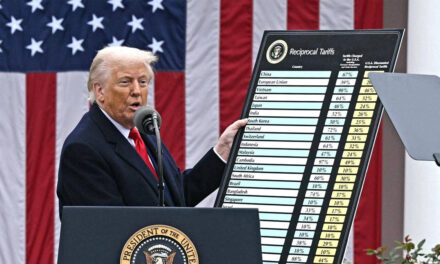
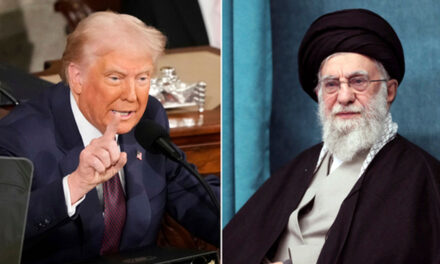


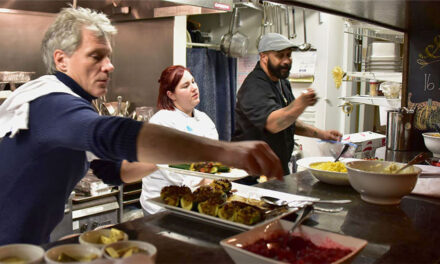





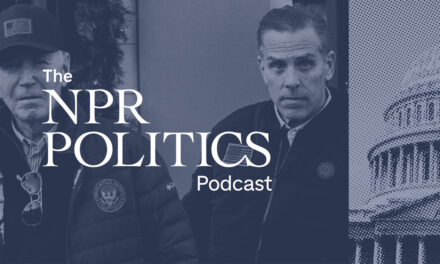





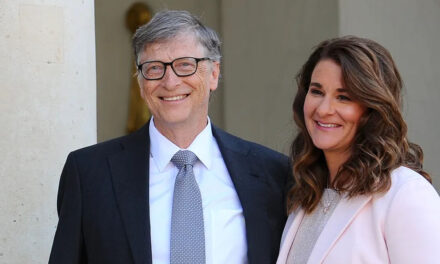






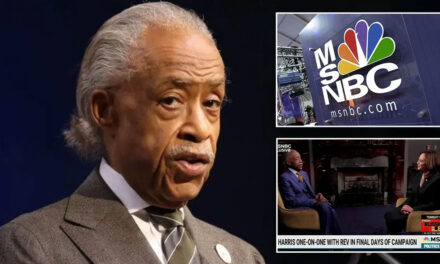
Adam Smith never imagined his economics would become so misunderstood, misinterpreted, and reduced to Junk Economics by those who claim…
Blink again and Trump is reversing on himself on his tariff fiasco. He goes nuts with the amount of worldwide…
Trump has arrested development syndrome stuck in the 19th Century. His wishes to be a dictator colonialist land baron.This is…
Once again, Seth do spew that doo doo that he do so well starting with spelling my name wrong so…
He arose to belittle our country while still trying to be Spartacus Not gonna happen. Maybe you libturds can get…